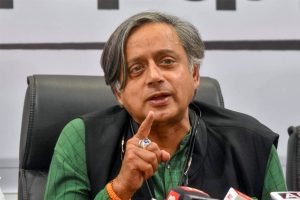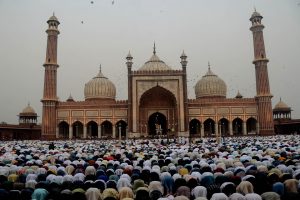On the occasion of India’s 78th Independence Day, a flag-hoisting ceremony was held at Patanjali Yogpeeth, presided over by Swami Ramdev and Acharya Balkrishna.
The event was marked by a renewed commitment to nation-building, with an emphasis on holistic freedom encompassing education, healthcare, economy, culture, and ideology.
Advertisement
Addressing the gathering, Ramdev highlighted the sacrifices made by over five lakh martyrs who laid down their lives for India’s independence. He emphasized that Patanjali is determined to extend freedom beyond political independence, focusing on liberating the nation from diseases, addictions, and societal vices.
Ramdev announced that Patanjali would intensify its campaign to achieve these goals, contributing to making India a healthy, prosperous, and morally strong nation.
Ramdev criticized the existing education system, which he claimed has led to the creation of a large number of educated unemployed individuals, potentially causing social unrest.
He advocated for value-based education through institutions like Patanjali Gurukulam, Acharyakulam, and Patanjali University, which he believes will provide true educational freedom to the new generation.
In addition to education, Ramdev pointed out the dangers of allopathic medicine, alleging that millions of deaths occur each year due to their harmful effects. He positioned Patanjali’s initiatives, such as Patanjali Wellness, Yoggram, and Niramayam, as movements towards healthcare freedom.
He also touched upon global geopolitics, warning against the conspiracies of international powers in countries like Bangladesh, Sri Lanka, the Middle East, Pakistan, and Afghanistan. He asserted that India’s unity, integrity, and sovereignty must be preserved to prevent such plots.
Ramdev urged the government of Bangladesh to stop the attacks on minority Hindus, their businesses, and temples, cautioning that if these atrocities do not cease, India, with its diplomatic and global influence, will respond firmly.
On the issue of caste-based census, Ramdev criticized those who are inciting religious and caste-based fanaticism for political gain. He called for the nation to be safeguarded from divisive ideologies and stressed the importance of maintaining national unity.
Acharya Balkrishna, in his address, paid tribute to the martyrs who fought for India’s freedom, urging the people to work towards realizing the dreams of these heroes. He reaffirmed Patanjali’s commitment to nation-building, under the leadership of Swami Ramdev, by striving to create the India envisioned by the freedom fighters.
The event also featured patriotic cultural performances by students from Patanjali Gurukulam, Acharyakulam, and Patanjali University, which instilled a deep sense of national pride among the attendees.
The ceremony was attended by scholars from Nepal, officials from various units and educational institutions associated with Patanjali, employees, students, and monks from the Patanjali Sannyas Ashram.
















